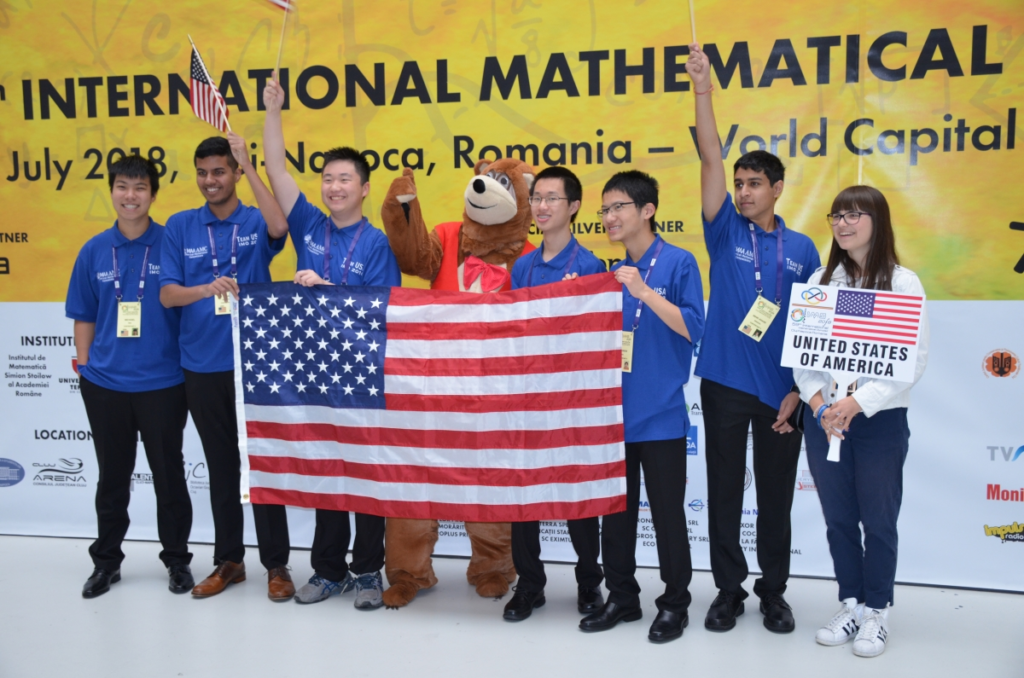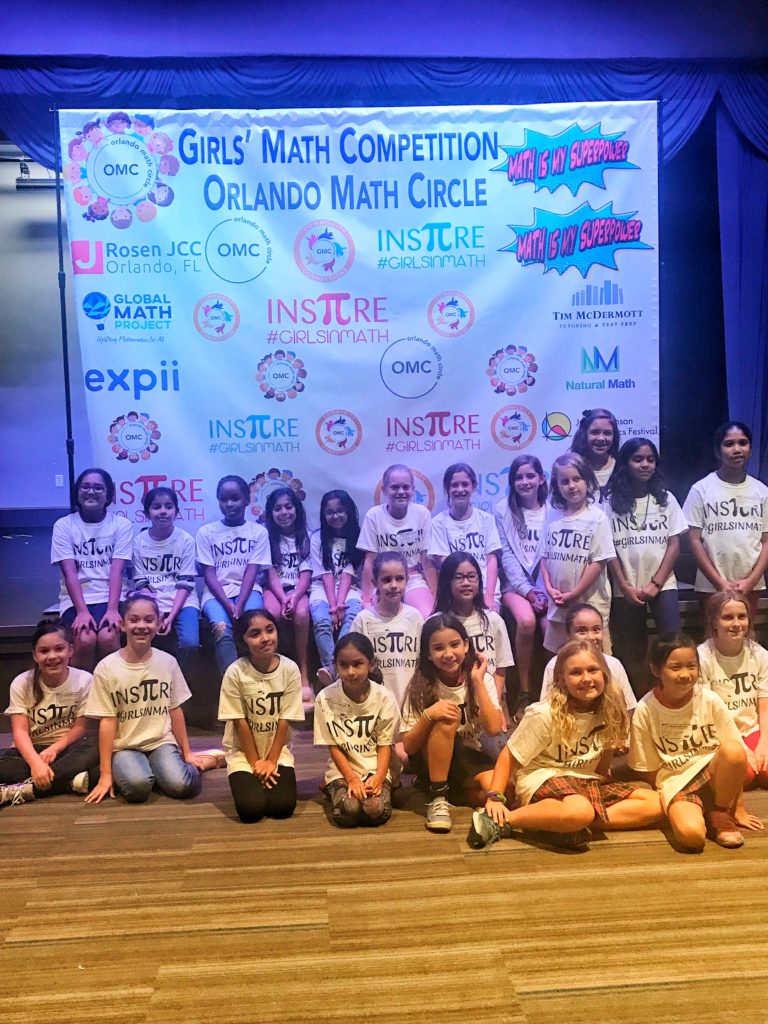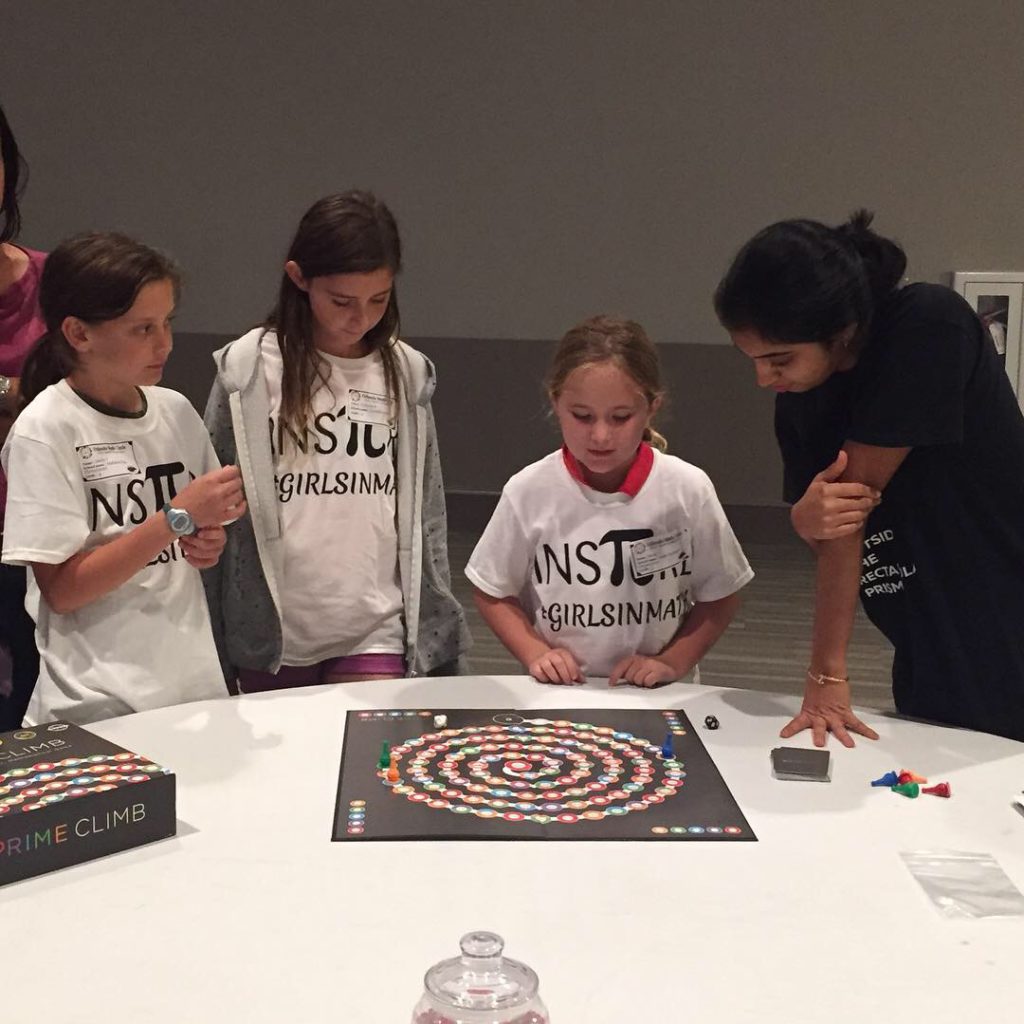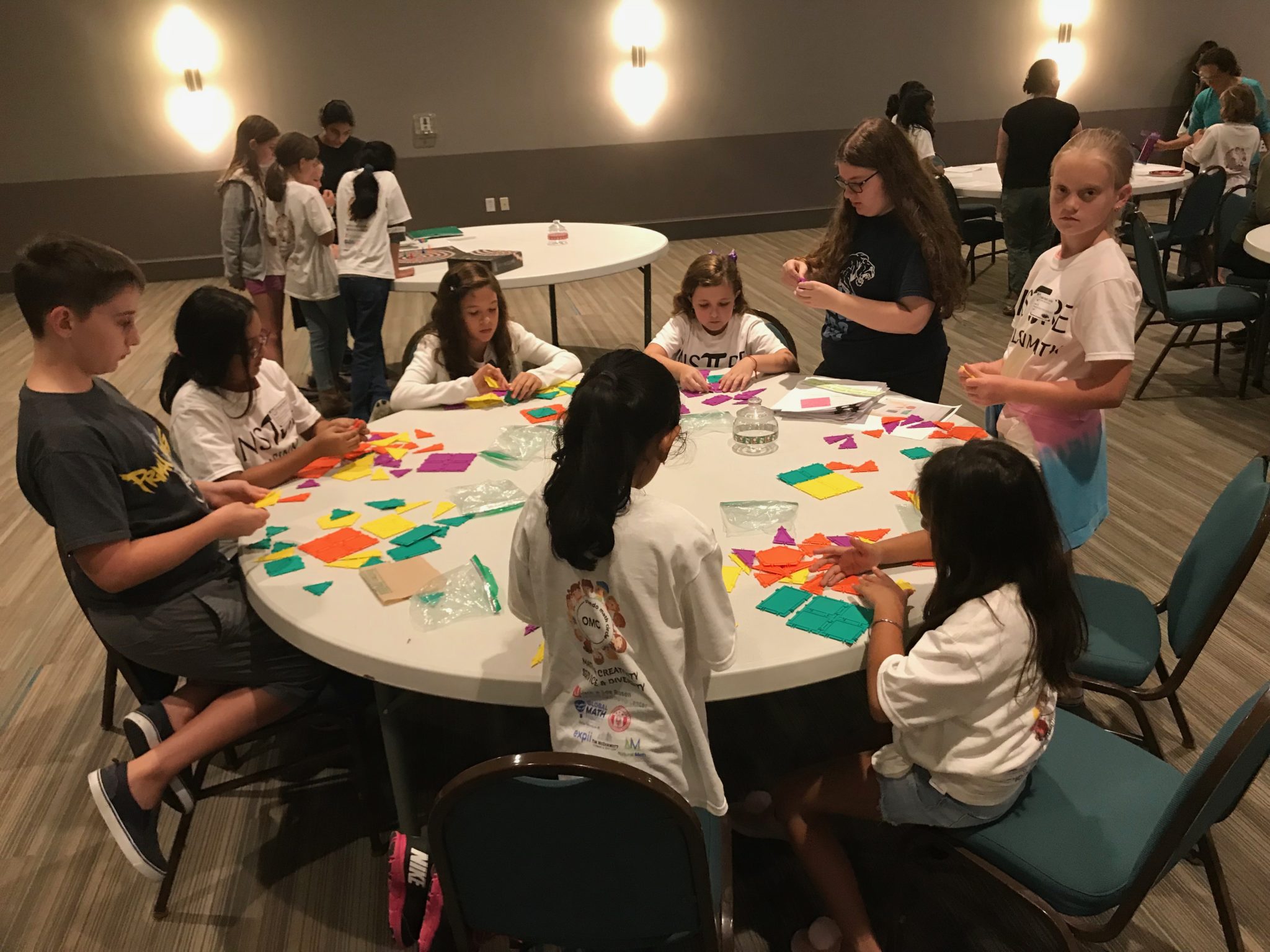
Pic Credits : From AlphaStar Academy website
Each year the International Mathematical Olympiad invites over six hundred of the brightest young mathematicians across the globe to represent their country in an annual six-problem competition. They are challenged to solve complex mathematics problems in topics ranging from projective geometry to combinatorics. If these high schoolers are arguably some of the most intelligent children in the world, then why on average are only 65 of them female? Why is 89.53% of the pool of participants male? Why do girls not compete at the same level as boys? As I scroll through my news timeline and see that the all-male USA team has won the competition for the eighth time, these are the questions that run through my mind. A girl has never been on the winning USA team, but not because a female team member would weaken their performance, but rather that girls rarely want to participate. The USA have been participating in the International Mathematical Olympiad for 45 years, yet only 3 out of the total 282 participants were female over a combined time span of 5 years. For 40 years, team USA have competed in the Olympiad with an all-male team. When the USA joined the competition in 1974 a male-only team would have been aligned with the societal standards of the time, but surely by 2019 there would be at least one girl on the team? Unfortunately, that seems a little too optimistic as the last girl on the team was back in 2007, when Sherry Gong shared the title of highest performer on the team with a total of 32 points. The problem is not that girls cannot participate in elite mathematics competitions, is it that they will not.
A.K. Whitney cites, “A 2009 study on gender and math competitions by the economists Glenn Ellison and Ashley Swanson found fewer American girls than boys took the exams needed to qualify for events like the International Olympiad. Also, the girls who did take those exams mostly came from a small group of elite schools; the boys, meanwhile, were from all over, leading the authors to conclude that most schools are failing to encourage girls in math.” When schools do not support girls’ pursuit in mathematics, anxiety around the subjects becomes ingrained into their culture. If we want to increase female participation in elite competitions such as the Olympiad, we need to ensure they are receiving the support and encouragement from as young as elementary school age. A 2010 study by Chicago psychologist Sian Beilock found that when girls are not being encouraged in their mathematical endeavours, a detrimental stereotype is unleashed. “Interestingly, on average, girls and boys performed the same,” says Beilock. “Only the girls who endorsed the stereotype [that boys are better at math than girls] showed a drop-in math performance.” This supports work Beilock and others have done on “stereotype threat,” which shows that “people perform poorly when a negative stereotype is in play,” cites Beth Azar.
Girls can perform as well as boys in mathematics, but they often lack the confidence to do so. The stereotype that there a “girls subjects” and “boys subjects” is still abundant in early education; this toxic stereotype cultivates a negative environment in which girls are discouraged from pursuing mathematics before they have had the chance to explore it. Jo Boaler cites a study, “Hart (1989) found boys interacted more with their teacher publicly (and therefore received more positive public evaluation) than girls did, despite their confidence levels in the subject.” The study suggests that it might not only be a question of negative stereotypes, but also a lack of confidence. Elevated interaction between students and teachers naturally leads to an increased amount of public praise, which will likely encourage and motivate students to pursue a subject. The combination of negative stereotypes and lack of confidence means that girls don’t have access to the same tools as boys to lead them into high-level mathematics, and by extension, into elite mathematics competitions.
So, how do we get more girls participating in elite competitions such as the International Mathematical Olympiad? While it seems that a lot can be gained from a more inclusive encouraging classroom environment, perhaps the issue can be addressed through more accessible competitions. The latter are small scale competitions that are targeted towards girls in their respective communities; these competitions are a critical step in making math competitions inclusive and accessible. The hope is that this will install a domino effect by which participation in local all-girl competitions leads to participation in international competitions. Specifically, in the Orlando community, the Orlando Math Circle will be running the second annual Girls’ Math Competition on October 29th.

This competition is for girls in third to fifth grade, which is the perfect age range to expose them to higher-level mathematics.


The generous venue sponsor and host of this competition is Rosen JCC. The competition consists of a one-hour contest followed by an hour of math games, with
awards to finish. There are only 2 weeks left to register for the annual
Girls’ Math Competition, register at https://www.

Author : Madighan Crowley
Madi Crowley is a senior at Lake Highland Preparatory. She has had different roles at Orlando Math Circle including content content writing, social media coverage of events and producing a math video; to help make mathematics more inclusive for all students in our community. Madi is also the captain of her school’s debate team. She cares deeply about social issues and is happy she can apply her debate skills to inform the public about the gender divide in mathematics and possible steps to help bridge the gaps for underrepresented minorities in a field that is the foundation of all scientific progress.
